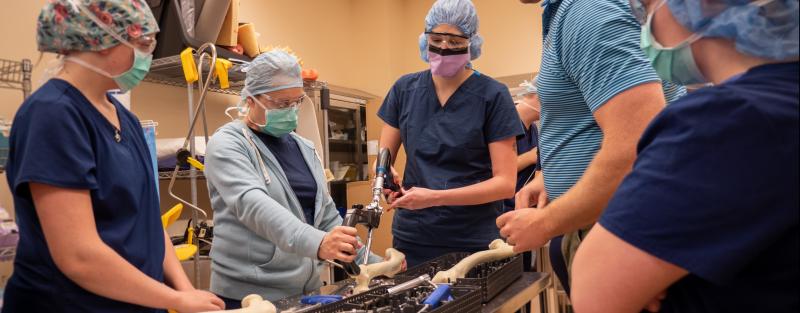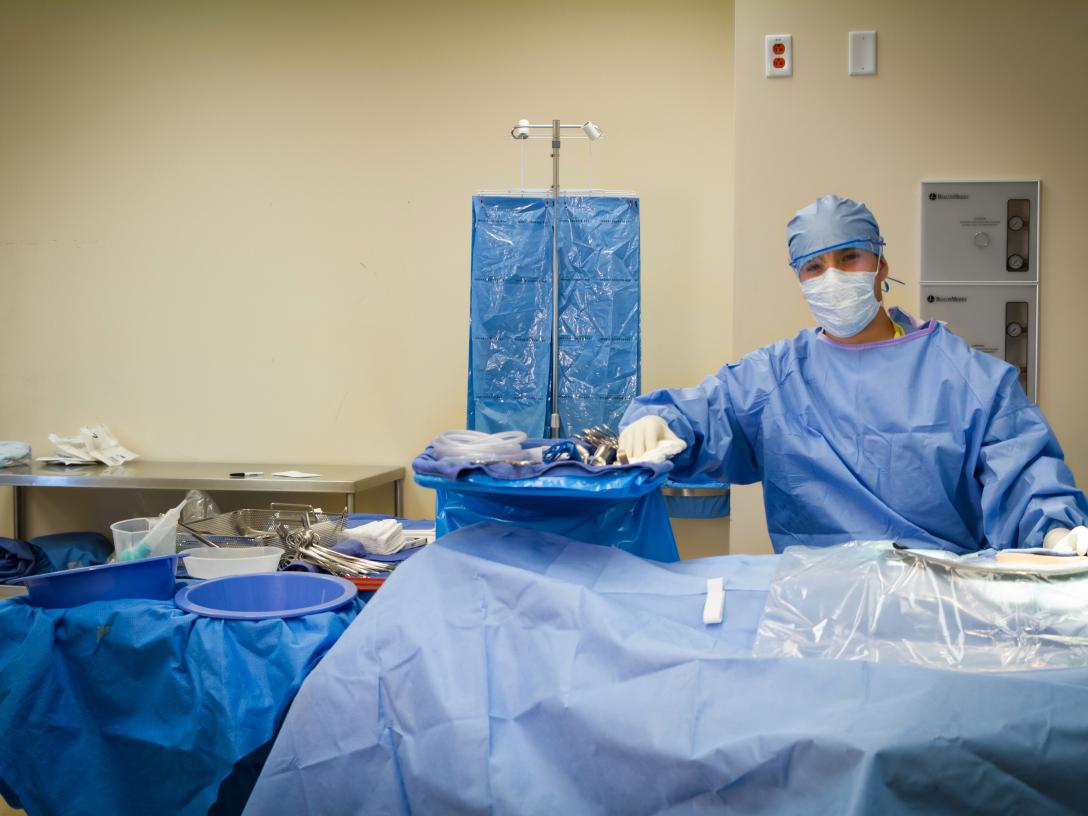Earn an Associate Degree in Surgical Technology at Aims
Turn your desire to help others through medical science into a fulfilling career as a surgical technologist. Earn a surgical technology associate degree at Aims and get a job working as a surgical technologist at a hospital, clinic or surgical center.
Surgical technologists are an integral part of surgical teams, working with surgeons, nurses and other technicians to ensure that the operating room is safe and that all equipment is functioning correctly.
While earning an associate degree in surgical technology, study subjects including:
- Medical terminology
- Anatomy and physiology
- Microbiology
- Surgical safety standards and techniques
- Proper use of surgical equipment, including endoscopy, robotics and lasers
In this two-year surgical technologist degree program, learn the surgical preparation and assisting techniques and safety protocols required to become a surgical tech. Gain hands-on skills both in a lab setting and during internships working with actual patients. Get practice in applying critical thinking skills, providing patient care and multi-tasking in a fast-paced work environment.
If you’d like to work in the medical field by applying acute attention to detail in a high-pressure, fast-paced environment, consider earning an associate degree in surgical technology at Aims.








